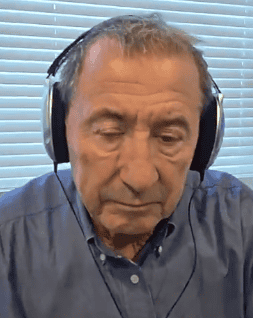Non-Binding Referendums are Key to Political Reform
By Seth Grossman, Political Columnist
Reprinted from December 31, 2008 Current Newspapers of Atlantic County
New Jersey Statutes 19:37-1 through 19:37-4: Non-Binding Referendums
“When the governing body of any municipality or of any county desires to ascertain the sentiment of (its) legal voters . . . (it) may adopt . . . an ordinance or a resolution requesting the clerk of the county to print upon the official ballots to be used at the next ensuing general election a certain proposition to be formulated and expressed in the ordinance or resolution. . . . Such result shall not bind the governing body . . . nor be taken or construed as other than an expression of sentiment by the voters, to be followed or disregarded by the governing body in its discretion.”?
?
These simple laws have been on the books since 1930. They let the officials of every county, city, township, and borough in New Jersey give people a chance to vote their opinions on every public issue that affects them. The results are not binding. But they are useful in letting politicians know what their constituents want. Our NJ Constitution lets the NJ Senate and Assembly do this for statewide issues.
So why do they almost never let us vote on these questions?
Doesn’t every candidate promise to represent the people? Doesn’t every official urge us to call and write them, and voice our opinions at freeholder, council, and township committee meetings?
Aren’t non-binding referendums better and more accurate than counting letters, phone calls, e-mails, or how many people show up at public meetings or hearings?
Right now, public opinion polls are the only way to know how our fellow citizens feel about important issues. But they are expensive. And they are only taken on a small number of selected issues to advance the agendas of the people who pay for them. These polls are easily manipulated by how questions are worded, and how samples are taken. Newspapers and TV networks are also selective in deciding which poll results to report.
Should medical marijuana, or all marijuana, be legal? Should the drinking age on college campuses be 21, or 18, or 19? Should state, county, and local law enforcement officers be certified to enforce immigration laws? Should government employees get wage hikes during years when most taxpayers earn less? If the cost of government employees goes up, should taxes go up, or should enough employees be laid off to keep taxes the same? Should governments get a three-year “holiday” on making pension contributions? Should casinos (or bars, or restaurants) be allowed to have smoking areas? Should government contracts and employee salaries be posted on the internet?
Should certain developers get tax and zoning breaks not available to everyone? Should eminent domain be used to take the private property of some to benefit the private businesses of others?
How would most voters answer those questions? Should our elected officials know the opinions of most voters before they act? Remember that these referendums are non-binding. Elected officials would still be free to do what they want. But don’t our officials want to know what most voters want?
Obviously, they don’t. Otherwise, they would let us vote on questions like this in every town and county, during every election. But why don’t they?
Circle the best answer to the multiple-choice question below:
Our elected officials, both Democrats and Republicans don’t want to know the opinions of us voters on the most important issues that affect our lives because:
A. Most elected officials never heard of New Jersey Statute 19:37-1, and don’t know they can put non-binding questions on the ballot at any time.
B. Most elected officials believe they are smarter and better informed than most voters, and don’t care what voters think.
C. Most elected officials do what they are told to do by the power brokers and special interests who got them their campaign money and union endorsements and “volunteers” – they only pretend to answer to voters.
D. Putting important issues on the ballot would encourage more informed and issue-oriented voters to vote – something most elected officials don’t really want.
E. All of the above.
Our organization, Liberty and Prosperity, previously identified Seven Basic Principles to restore Liberty and Prosperity to New Jersey. They are posted at www.libertyandprosperity.org. We recently added letting voters express their opinions through frequent non-binding ballot questions as our Eighth Basic Principle.

